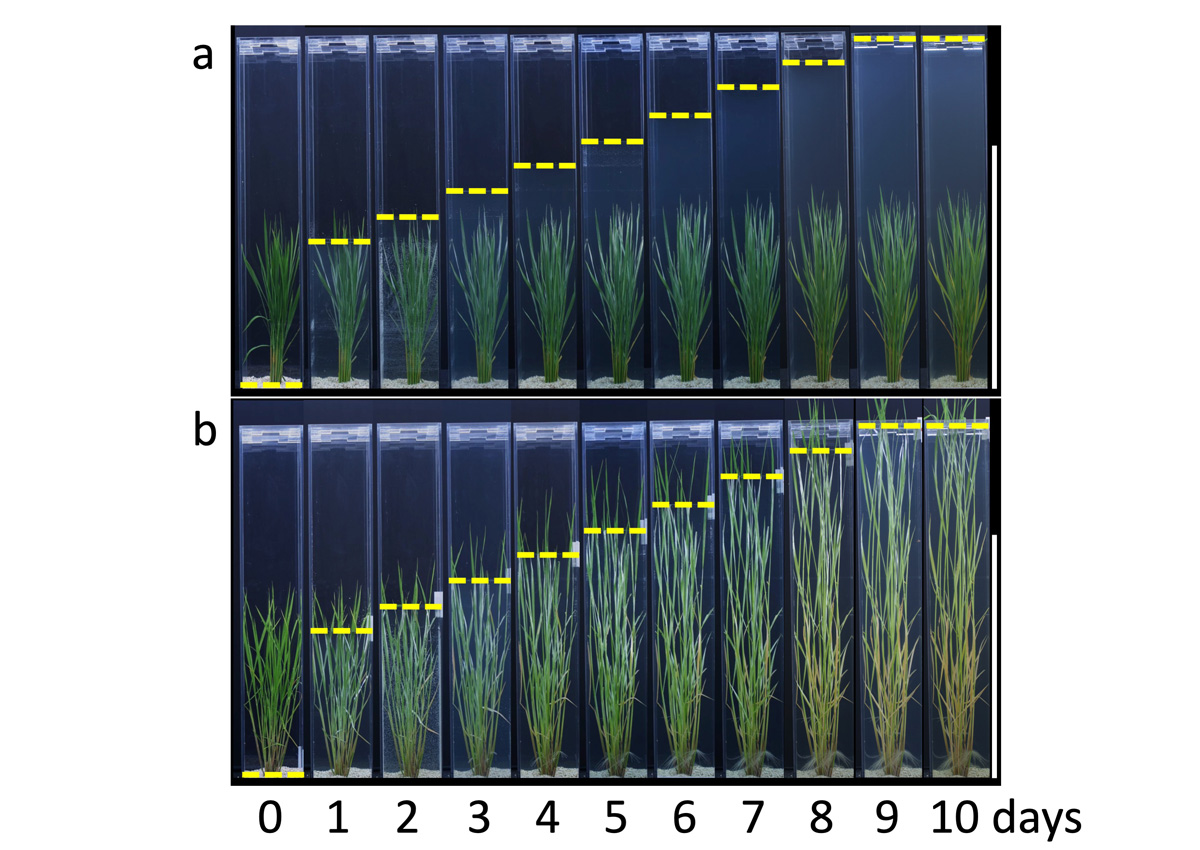
Antagonistic Genes Modify Rice Plant Growth
August 26, 2020| |
Two antagonistic genes involved in rice plant stem growth were discovered by scientists at Nagoya University and their colleagues in Japan. The two genes are called ACCELERATOR OF INTERNODE ELONGATION 1 (ACE1) and DECELERATOR OF INTERNODE ELONGATION 1 (DEC1) and were also found in plants such as barley and other grasses.
Gibberellic acid is a key driver of plant growth, activating cell division in the stem tissue and causing the stem to lengthen. Breeders know they can control plant height by stimulating or inhibiting gibberellic acid activity. However, exactly how this works has been unclear. Bioscientist Motoyuki Ashikari and his team of researchers conducted genetic studies and identified the two genes that are involved in regulating rice plant growth. They also showed that gibberellic acid is necessary, but not enough, for stem elongation.
The two genes, however, counteract each other as part of the regulation process. In the presence of gibberellic acid, ACE1 stimulates cell division and elongation of the stem's 'internode' sections in deepwater rice. The shorter paddy rice variety did not have a functional ACE1 gene, but it did have a homologous ACE1-like gene that was switched on to activate stem elongation at a different point of plant development. DEC1 was found in both the deepwater and paddy rice varieties and its expression was reduced when deepwater rice plants were placed in deep water or treated with gibberellic acid. However, DEC1 continued to be expressed in paddy rice, even under the same conditions, suggesting this gene helps to suppress stem growth.
For more details, read the article at Nagoya University Research Achievements.
| |
You might also like:
- Scientists Discover Gene that Improves Yield and Fertilizer Use Efficiency of Rice
- Study Pinpoints an NLR Gene that Confers Partial Resistance to Rice Blast Fungus
- Scientists Pinpoint a Rice Gene that Confers Broad-spectrum Herbicide Resistance
Biotech Updates is a weekly newsletter of ISAAA, a not-for-profit organization. It is distributed for free to over 22,000 subscribers worldwide to inform them about the key developments in biosciences, especially in biotechnology. Your support will help us in our mission to feed the world with knowledge. You can help by donating as little as $10.
-
See more articles:
-
News from Around the World
- ISAAA Webinars: Animal Biotechnology, The Next Frontier
- Florida Board Allows First GM Mosquito Trials in the US
- Wild Genes to Improve Nitrogen Fixation in Soybeans
- Filipino Regulators Learn from International Experts in Regulating Animal Biotech Products
- Russian Biologists Sequence Fusarium Genome
-
Research Highlights
- Research Shows Bt Cotton's Performance in Rainfed Areas
- Antagonistic Genes Modify Rice Plant Growth
-
Plant
- Root Angle Modifications Lead to Improved Rice Yields in Saline Fields
- Scientists Re-evaluate Rice Green Revolution Gene
-
Health
- MassBiologics Identifies Antibodies that may Protect Against COVID-19
- Hospital in Israel Starts Trials for the Fastest COVID-19 Test
- Scientists Discover Mutation Making SARS-CoV-2 Milder
-
Read the latest: - Biotech Updates (January 14, 2026)
- Gene Editing Supplement (December 17, 2025)
- Gene Drive Supplement (February 22, 2023)
-
Subscribe to BU: - Share
- Tweet

